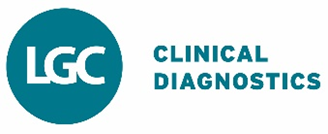

Digestive Cancers Europe (DiCE) and Lung Cancer Europe (LuCE) are partners of the GUIDE.MRD Project. DiCE and LuCE play a crucial role in ensuring that the patient’s perspectives are strongly represented through their extensive networks.
We have a dynamic Patient Advisory Board (PAB) with patients and carers, including different national organisations and advocacy groups, from the countries where clinical studies will be conducted. Our aim is to involve the PAB in shaping the clinical study-to-patient communication strategy, creating patient information materials, and organising the logistics related to patients’ participation in the clinical studies.
The PAB with DiCE and LuCE, representing EU patient organisations, people with cancer and caregivers across lung, colorectal and pancreatic cancers, will play a crucial role in understanding what patients need along their care pathway, particularly post-surgery and prior to relapse. The idea is to utilise existing tools, such as the From Testing to Targeted Treatments (FT3) Program’s Access Barrier Cause-Effect Canvas and Patient Stories visualizations, to better define patients’ needs and experiences.
The PAB individual organisations, individuals and caregivers will be engaged across the entire process of research and development to ensure individual engagement in project research and outcomes are patient-centred. Examples of this include relevant individual outcomes (WP2-3), precision oncology diagnostics (WP2), understanding, interpreting and acting on test reports for decision-making (WP2), patient-friendly clinical study design (WP3), relevant individual experience data on testing and multi-modal therapies in the care pathway (WP3), plain language materials (WP2-5), patient-centred data governance models (WP4), dissemination & communication channels (WP5), highlight patients’ needs and their pathway expectations, and align with project activities (WP6) etc.


(link to external website)


This project is supported by the Innovative Health Initiative Joint Undertaking (JU) under grant agreement No 101112066.
The JU receives support from the European Union’s Horizon Europe research and innovation programme and EFPIA (including Vaccines Europe), MedTech Europe and LGC Clinical Diagnostics INC.
Funded by the European Union, the private members, and those contributing partners of the IHI JU. Views and opinions expressed are however those of the author(s) only and do not necessarily reflect those of the aforementioned parties. Neither of the aforementioned parties can be held responsible for them.





